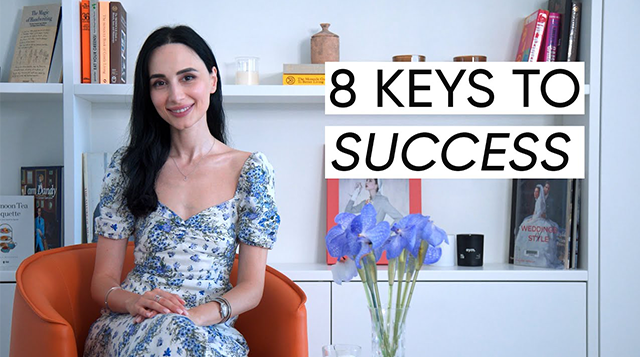
Welcome to today's discussion on breast cancer, a topic that affects millions of people worldwide. We are joined by Dr. Tunzala Mammadova, an expert in the field from the National Oncology Centre of Azerbaijan.
With her extensive knowledge and experience, Dr. Mammadova will help us understand the basics of breast cancer, its causes, and the prevention measures that can be taken to reduce the risk. So, let's dive into this crucial topic and learn more about how we can protect ourselves and our loved ones.
Jamila: First, can you give us a simple explanation of what breast cancer is for those who may not have a medical background?
Dr. Mammadova: Sure. Breast cancer is a type of cancer that begins in the cells of the breast. Normally, the cells in our body have a self-control program where each cell has a specific lifespan. The cell lives its life and then it dies, and the body's self-healing capability becomes engaged.
However, if external factors, such as gene mutations, traumas, or other causes, damage a body cell, then the damaged cell starts self-reproduction. One damaged cell reproduces into two, four, eight, 16... cells and this cell's self-destruction program, or the body's self-healing capability, becomes 'switched off'. These pathological cells start growing, and sometimes cancer development takes years.
Jamila: Thank you for explaining that. Breast cancer is known to be a multi-factor disease. Could you explain which factors we should focus on as a priority?
Dr. Mammadova: In 90% of cases, breast cancer occurs irregularly, which stands for unknown reasons. There are too many reasons. In only 10% of cases, breast cancer has been inherited. Among other reasons, we also see breast injuries, external environmental factors that influence our mutation, women reproduction malfunctions, absence of childbirth, absence of sexual life, early onset of menstruation, late menarche, late menopause, lots of hormone factors, and associated diseases.
Identifying specific reasons that contributed to a woman's breast cancer is absolutely impossible. That is: we don't know, and no one can guess or discover exact triggers of a particular person's cancer. However, inherited cancer has its own nuances. Breast cancer and also woman's ovarian cancer is linked to mutations, to the gene mutations.
By taking a blood test, a woman can identify her own gene mutation of this kind: Genetic mutations BRC1, BRC2. As these mutations' presence escalates a cancer risk from 70 times to 75 times. For a normal healthy woman, a risk of developing breast cancer is some 10% to 12% taken across her lifetime. But for women with gene mutations, the chances of developing cancer are very high.
Prevention measures are mandatory, as it leads to traumas, often to psychological ones. But there is a solution to this problem: to consider 'skin sparing mastectomy' and both side ovaries removal so that the problem won't re-occur. A positively (BRC) tested woman belongs to a high-risk group. Every such woman inherited these genes from her parents in 50% of cases: either from mother or from father. Mutation isn't acquired in a lifetime, it is inherited by birth.
Jamila: Thank you for explaining that. Another factor that is often discussed in relation to breast cancer is trauma or hits to the breast area. How crucial is this in the occurrence of breast cancer?
Dr. Mammadova: Certainly not always and not in 100% of cases, but there were many patients coming to us specifically following breast traumas. When obtaining a patient's history, we ask, "Did you have traumas?" The patient replies, "One, two, three years ago, there was a trauma in fact."
As I have already said, what is cancer? It's cell damage. A 'hematoma' appears at the trauma location. If these damaged cells won't disappear, then in a certain time span, they start reproducing themselves, and this is exactly a cancer.
Jamila: If someone has experienced breast trauma, is it possible to safeguard the damaged cells in any way, such as through massage or other methods, to bring them back to life?
Dr. Mammadova: Unfortunately, there is no way to revive damaged cells following trauma. In cases of breast trauma, it is important to seek medical attention from a doctor who can assess the extent of the damage and provide appropriate treatment.
Jamila: For those who have experienced breast trauma, what kind of follow-up examinations should they expect, and how frequently should they be performed?
Dr. Mammadova: Patients who have experienced breast trauma should visit a doctor for an examination and appropriate treatment. Following an initial examination, patients may be advised to undergo follow-up examinations at specific intervals. These intervals may vary depending on individual factors and the severity of the trauma. It is important for patients to adhere to these recommendations to ensure early detection of any potential issues.
Jamila: What is the recommended examination frequency for women with no history of breast cancer or genetic factors, and at what age should they begin screening?
Dr. Mammadova: I recommend that all women begin annual breast ultrasound examinations starting at the age of 18. This should be accompanied by an examination of the female organs and thyroid, as these systems are interrelated and can impact each other.
Women over the age of 35 should undergo ultrasound examinations twice a year and an annual mammography examination. However, it is important to note that these recommendations may vary depending on individual factors, and it is best to consult with a doctor to determine the appropriate examination frequency.
Jamila: What should women look for during a self-examination at home, and how often should they perform it?
Dr. Mammadova: While self-examination is not a substitute for professional examination, it is still an important habit to cultivate. Women can set up a monthly reminder to perform a self-examination, which involves looking at the breasts in a mirror and feeling for any changes or abnormalities.
Indications to look for include breast asymmetry, changes in skin condition, nipple discharge, and any unusual lumps or bumps. Even if a woman does not feel any pain or discomfort, it is still important to perform a self-examination every month to ensure early detection of any potential issues.
Jamila: Is it necessary to squeeze or apply pressure during a self-examination, even if there is no pain or discomfort?
Dr. Mammadova: Breast cancer generally proceeds painlessly, which is why it is crucial to perform a self-examination every month. Squeezing or applying pressure during a self-examination can help to detect any abnormalities that may not be visible or palpable otherwise. However, women should not apply excessive force or pressure during the examination to avoid causing any additional trauma or damage to the breast tissue.
Jamila: What is the most important aspect of a self-examination, and how can it help with early detection?
Dr. Mammadova: The most important aspect of a self-examination is to look in a mirror and feel for any abnormalities. By performing a self-examination every month, women can become familiar with the normal appearance and feel of their breasts, enabling them to detect any changes or abnormalities early on. Early detection is crucial for successful treatment and recovery from breast cancer.
Jamila: Can you walk us through the stages of breast cancer and the treatments that are available?
Dr. Mammadova: Breast cancer has several stages, ranging from 0 to 4. In the early stages, surgery is often the primary treatment option. Chemotherapy and radiation therapy may also be used, depending on the stage and characteristics of the cancer. Hormone therapy is another treatment option for women with hormone-positive breast cancer. In the later stages of breast cancer, treatment options may be limited, and the focus may shift to palliative care.
Jamila: That's helpful to know. What advice would you give to women who are hesitant to seek medical attention for breast cancer?
Dr. Mammadova: It's understandable to feel anxious or scared about seeking medical attention for breast cancer, but it's important to remember that early detection can increase the chances of successful treatment. I would encourage women to speak with their healthcare providers about any concerns they may have and to schedule regular screenings and check-ups. It's also helpful to have a support system of family and friends during this time.
Jamila: Is there an age when women should start getting mammograms?
Dr. Mammadova: Yes, women should begin getting mammograms at age 40, or earlier if they have a family history of breast cancer. However, it's important to discuss the appropriate screening schedule with your healthcare provider.
Jamila: Does breast size affect a woman's risk of developing breast cancer?
Dr. Mammadova: No, breast size does not affect a woman's risk of developing breast cancer. Women of all breast sizes have an equal risk of developing breast cancer.
Jamila: Finally, what advice would you give to women who want to reduce their risk of developing breast cancer?
Dr. Mammadova: While there is no guaranteed way to prevent breast cancer, there are steps that women can take to reduce their risk. This includes maintaining a healthy weight, engaging in regular physical activity, limiting alcohol consumption, avoiding tobacco products, and getting regular check-ups and screenings. Additionally, women should perform regular self-examinations and speak with their healthcare provider about any concerns they may have.
Jamila: Thank you for sharing your expertise with us today, Dr. Mammadova. Your insights and advice are invaluable in the fight against breast cancer.
Dr. Mammadova: Thank you for having me. It's important to raise awareness about breast cancer and encourage women to prioritize their health and well-being.
In summary, early detection is key in the fight against breast cancer. Women can take steps to reduce their risk, such as maintaining a healthy lifestyle and getting regular check-ups and screenings. By performing regular self-examinations and seeking medical attention if any changes are detected, women can increase their chances of successful treatment and improved health outcomes. Let's raise awareness and encourage women to prioritize their health and well-being to fight against breast cancer.





.svg)